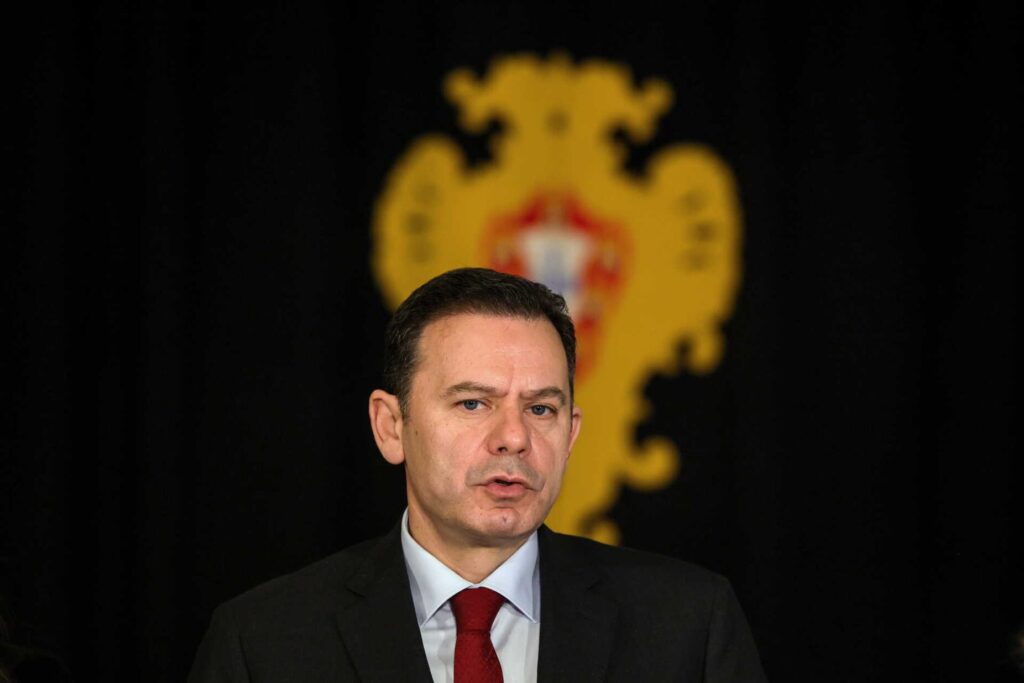The political crisis that led to the fall of Portugal’s Prime Minister, Luís Montenegro, gained international attention after Parliament rejected a vote of confidence in his center-right minority government on Tuesday, March 11. The parliament’s decision plunges the country into political instability and forces early general elections, scheduled for mid-May, as announced by President Marcelo Rebelo de Sousa.
Portugal had been facing a series of economic and social challenges, including the rising cost of living, the housing crisis, and pressure for reforms in the healthcare system. Luís Montenegro’s government assumed power with the promise of stabilizing the economy and implementing policies that would promote sustainable growth. However, the lack of a parliamentary majority made governance difficult from the outset.

The main controversy that triggered the political crisis involved the company Spinumviva, a data protection consultancy founded by Montenegro in 2021. In 2022, the prime minister transferred ownership of the company to his wife and children in an attempt to avoid conflicts of interest. However, the opposition alleged that Spinumviva had secured lucrative contracts with private companies, including a casino and a hotel, which could have been favored due to Montenegro’s position as head of government.
Portuguese law stipulates that assets acquired after marriage belong to both spouses, which placed the transfer of the company’s ownership in a gray area between civil and commercial law. The opposition demanded a parliamentary inquiry to investigate the case, leading Montenegro to present a vote of confidence in an attempt to block the investigation.
The vote of confidence was seen as a risky move by Montenegro. Some political analysts interpreted the maneuver as an attempt to consolidate internal support and avoid the damage of a prolonged inquiry. Others believed that Montenegro sought to force early elections at a time when his popularity was still relatively high and the Portuguese economy showed signs of recovery.
However, the strategy failed. Opposition parties, which hold a majority in Parliament, had already signaled they would reject the motion. Moreover, when Montenegro proposed a parliamentary inquiry with a maximum two-month deadline, the opposition Socialists refused to negotiate the time limit, making the vote inevitable.
With the rejection of the motion, Montenegro’s government now operates on an interim basis until the early general elections in May. This will be the third national election in just over three years, reflecting the political instability that has recently plagued Portugal.
Montenegro’s political situation was further aggravated by public perception that he attempted to bypass the parliamentary investigation. The lack of support within Parliament and public pressure ultimately sealed his political fate.
The rejection of the vote of confidence and the anticipation of elections generated mixed reactions within Portuguese society. While some sectors of the population celebrated the fall of the government, accusing Montenegro of a lack of transparency, others expressed concern about political instability and the impact on the country’s economy.
Social movements and unions seized the moment to push for broader social and economic reforms, while left- and right-wing parties prepare to vie for the votes of disillusioned citizens.
Experts in Portuguese politics highlight that the current crisis reflects not only ethical issues involving the prime minister but also the fragmentation of Parliament, where left- and right-wing parties struggle to form stable coalitions. Additionally, the legal issue surrounding Spinumviva’s ownership transfer exposes a “gray area” between Portugal’s civil and commercial law that still needs better regulation.
Portugal’s President, Marcelo Rebelo de Sousa, played a crucial role in managing the crisis. By calling early elections for May, he aims to give the Portuguese people the opportunity to choose a new government and restore political stability. Rebelo de Sousa has been an influential figure in Portuguese politics, acting as a mediator during crises and advocating for transparency and ethical responsibility among leaders.
The early elections represent a crucial moment for Portugal. Major political parties, including the Socialist Party, the Left Bloc, and the Social Democratic Party, have already begun mobilizing their bases and presenting proposals to address the country’s economic and social challenges.
The fall of Luís Montenegro highlights the complexities of the Portuguese political system and the growing pressure for transparency and ethical responsibility among the country’s leaders. With early elections approaching, Portugal’s political future remains uncertain, and voters face the difficult task of choosing leaders who can restore stability and confidence in the government.
The collapse of Luís Montenegro’s government reflects not only a specific scandal but a deeper crisis of governance and trust in Portugal’s democratic institutions. The rejection of the vote of confidence exposed the weaknesses of the parliamentary system and the political polarization that has hindered consensus-building. The country’s future will depend on the ability of political parties to engage with the population, present concrete solutions to social and economic challenges, and restore trust in the democratic process. The early elections in May will be a crucial test of Portugal’s political maturity and its search for a more stable and transparent path forward.

